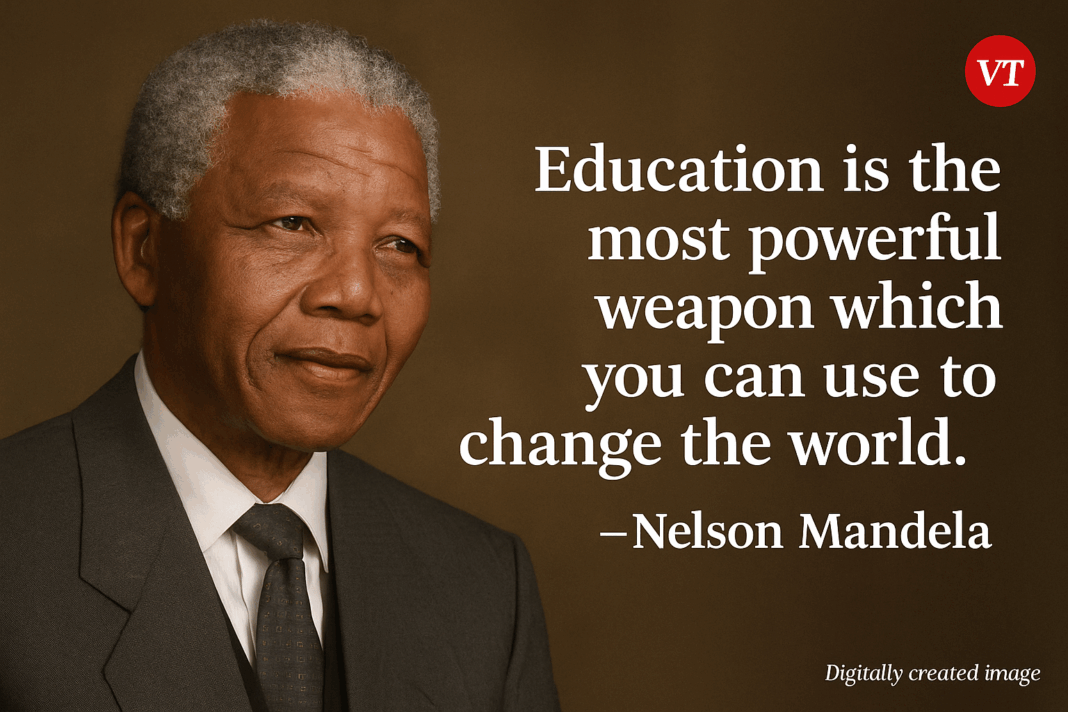Today marks the birth anniversary of Nelson Mandela, the anti-apartheid revolutionary who became South Africa’s first black president and one of the most admired global figures of the 20th century. Affectionately known as “Madiba,” Mandela’s fight for justice, international diplomacy, and Nobel Peace Prize legacy continue to inspire generations around the world.
Nelson Rolihlahla Mandela was born on July 18, 1918, in the rural village of Mvezo in South Africa’s Eastern Cape. Over the course of a lifetime dedicated to dismantling racial segregation and oppression, Mandela became the face of peaceful resistance and moral leadership.
From Political Prisoner to President
Mandela’s unwavering fight against apartheid—South Africa’s brutal regime of institutionalized racial segregation—led to his imprisonment for 27 years. Despite enduring harsh conditions on Robben Island and elsewhere, Mandela emerged without bitterness. His release in 1990 marked a turning point in South African history.
In 1994, Mandela was elected as South Africa’s first black president in the country’s first fully democratic elections. His presidency emphasized national reconciliation, truth commissions, and healing a divided society without seeking retribution.
International Symbol and Statesman
Mandela’s struggle resonated far beyond South Africa’s borders. He cultivated relationships with world leaders, from Fidel Castro to Bill Clinton, and forged new partnerships grounded in peace and equality. His calls for global unity and justice won him admiration from institutions and nations alike.
Mandela actively supported human rights causes worldwide, from HIV/AIDS awareness to anti-poverty campaigns. His post-presidential years were dedicated to philanthropy through the Nelson Mandela Foundation, which works to promote freedom, democracy, and dialogue.
A Nobel Peace Prize for Reconciliation
In 1993, Mandela was jointly awarded the Nobel Peace Prize with then South African President F.W. de Klerk for their efforts to peacefully dismantle apartheid and establish multiracial elections.
Global Praise and Reflections
World leaders hailed Mandela’s leadership and spirit of forgiveness:
Annan also described Mandela as a man of “steely determination and wonderful sense of humour” and emphasized his “gentle demeanour” and moral leadership.
Mandela Day 2025: A UN Tribute
On this year’s Nelson Mandela International Day, the United Nations Secretary-General released a message honoring Mandela’s legacy and urging the world to renew its commitment to social justice and human dignity.
Legacy of Peace and Forgiveness
Mandela’s name has become synonymous with forgiveness, courage, and unity. His leadership style—calm, principled, and inclusive—continues to influence political thought, social justice movements, and peacebuilding across the globe. Mandela Day, observed annually on July 18, encourages people to devote 67 minutes to community service in honor of his 67 years of public service.
Today, as the world faces new divisions and challenges, Mandela’s life offers a timeless blueprint for reconciliation. He reminds us that peace is not merely the absence of conflict but the presence of justice, compassion, and equality.
Follow Virginia Times for regular news updates. Stay informed with the latest headlines, breaking stories, and in-depth reporting from around the world.














